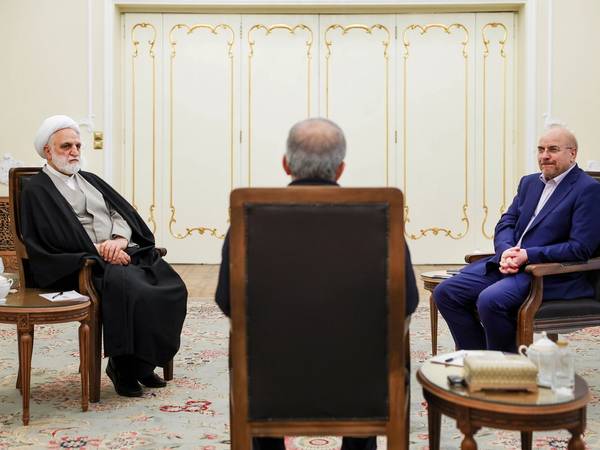Iranian politicians and media from rival factions have criticized President Masoud Pezeshkian on his 100th day in office, accusing him of doing little to address the economic, political, and social impasse or fulfill his campaign promises.
The criticisms come amid mounting crises: the country faces intermittent blackouts due to fuel shortages; protests by teachers, pensioners, and others fill major city streets daily; the parliament has admitted the Social Security Organization is bankrupt; the stock exchange experiences near-weekly crashes; the currency is at a historic low; and a winter fuel shortage looms as Turkmenistan has halted natural gas sales to Iran, citing unpaid bills.
One analyst remarked, "Pezeshkian promised improvement, but so far, things have only deteriorated." Seasoned politician Ali Larijani echoed this sentiment, noting that beyond issues like electricity, gasoline, natural gas, water, medicine, and bus shortages—as well as employment and education challenges—the budget deficit is as severe as it was during the critical days of the 1980s Iran-Iraq war.
Iranian journalists report that the government is framing its inability to supply electricity to households and industries as an "achievement" in environmental protection. Officials claim that blackouts are due to the shutdown of certain power plants to prevent the use of highly polluting fuels. Another journalist cautioned the government that propaganda on state media cannot resolve the country's problems and shortages.
Some conservative critics suggest that, given Pezeshkian and his government’s lack of progress over the past 100 days, any assessment of their capabilities should be postponed for another six months. Conservative MP Mohammad Saleh Jokar highlighted Pezeshkian's failure to address economic issues and lift Internet restrictions, stating, "What we have seen so far is nothing but slogans."
Jokar alleged that Pezeshkian has spent most of the past 100 days on appointments. He warned the government that the people are closely monitoring their performance.
Several conservative MPs criticized Pezeshkian's budget bill, saying it falls short of public expectations for improved living conditions. They also pointed out a lack of alignment between the budget’s resources and the government’s expenditures.
MP Mohammad Saleh Jokar remarked that, while the government claims to be in an "economic war," its current bureaucratic structure hinders any real progress.
Criticism of Pezeshkian's performance extends beyond conservative circles. Reformist commentator and political activist Ahmad Zeidabadi wrote in Ham Mihan daily, "Reviewing his first 100 days, one cannot call his performance brilliant, but he wasn’t a total failure either." Zeidabadi suggested that "more than anything, Pezeshkian needs balance."
Speaking about the much-criticized appointments in the government, Zeidabadi criticized the inclusion of hardliners as top officials in a government that supposed to bring change.
Pezeshkian has called his policy of appointments “national reconciliation,” but in effect it is nothing more than political horse trading between factions.
Referring to international tensions and crises over the past 100 days, Zeidabadi noted that “Pezeshkian has faced unprecedented bad luck,” possibly alluding to heightened confrontations with Israel and the severe setbacks experienced by Tehran's proxies, Hamas and Hezbollah.
Centrist politician Mohsen Hashemi offered a sharp critique of Pezeshkian, stating, "The country’s situation remains largely unchanged. There’s no noticeable shift in the government’s decisions or performance."
Hashemi also criticized Pezeshkian’s approach to national reconciliation, arguing, "National reconciliation isn’t about distributing government positions; it should mean seeking acceptable shared solutions to address the country’s crises, especially the pressing issue of livelihoods."
He added that not only has Pezeshkian failed to uphold his promise to lift internet restrictions, but his government also lacks a clear plan or timeline for this initiative. Furthermore, Hashemi accused Pezeshkian of maintaining the previous administration’s entire security sector, despite pledges for change.
